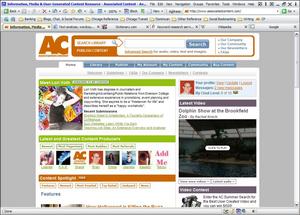Yoko Ono sued the singer-songwriter Lennon Murphy over her use of the name “Lennon.” Ono, who likely would have remained known to only a handful of the cognoscenti of the avant-garde New York art scene of the early 1960s but for her marriage to the late John Lennon, had earlier signed off on the singer’s use of “Lennon” as her professional stage name. Via her attorney, the same attorney who is now suing Lennon Murphy for Yoko, Ono had given Lennon Murphy permission to trademark the name “Lennon.”
The irony is that the singer-songwriter Lennon Murphy was named by her mother Kathleen for John Lennon, the author of the song Imagine, which asked the question “Imagine no possessions.” For Yoko Ono, John Lennon is her most valuable possession.
Born in Ronkonkoma on New York’s Ling Island on March 31, 1982, Lennon Anne Murphy signed a record contract with Arista soon after her 18th birthday. Her debut album 5:30 Saturday Morning was released by Arista on 9/11/01, and yielded the single “Brake of your Car. Recording and performing as “Lennon,” Murphy eventually left Arista. After releasing two CDs independently in 2004, she became an opening act for the late 2006 tour of Aerosmith and Mötley Crüe, which coincided with the release of her album Damaged Goods. She plans to release a new CD in 2008.
As a singer-songwriter, Lennon Murphy admits to being influenced by Barry Manilow. In an interview with Concert Livewire, Lennon admitted that, “Barry Manilow I love. And it took me a long time to not be afraid to say that, because I mean you’re in the rock genre and you don’t wanna say that you would fucking kill to see him live. And I finally realized one day I don’t fucking give a shit. I hate to say it, I love Barry Manilow.”
On her own Web site, Lennon Murphy talked about her legal troubles, characterizing Yoko Ono’s lawsuit as a threat against her career. According to Lennon Murphy’s own account, she had started playing as “The Lennon Murphy Band” at the age of 14 years-old. Her appearances also were marketed using the name “Lennon.” Known as “Lennon” from at least 1997, Arista Records made the decision to market her with just her Christian name.
Lennon is my first name by birth,” Lennon Murphy writes on her Web site, “and I am regularly asked if I was named after the Beatle, having always replied no. My mother named me after ‘John Lennon that wrote songs, painted, and baked bread with his son.’ She named me for the man, not the pop star.
Lennon Murphy’s Arista Records product manager was the son of Yoko Ono’s lawyer. Through this familial connection, Ono was consulted on Murphy’s use of her own name and her intention to file for a trademark on the name “Lennon,” and the Beatle’s widow did not object. The U.S. Patent & Trademark approved Lennon Murphy’s ownership of the name “Lennon” for musical use in 2003.
In the lawsuit, Yoko Ono claims that Lennon Murphy “fraudulently” registered the name “Lennon” as a trademark and claimed that her use of the trademark represented “tarnishment” of John Lennon’s image.
John Lennon’s first-born son Julian Lennon posted a statement on his MySpace Web page saying he doesn’t object to Lennon Murphy’s used of the name “Lennon.” Julian Lennon says, before a posting by Lennon Murphy of her legal woes, “She has my full support.”
According to Lennon Murphy, “Just 2 days before the statue of limitations was up this very same lawyer we went to in 2000 filed their complain. I accusing me of falsely representing myself and causing confusion in the market place that has damaged to the John Lennon name.
Lennon Murphy says that she cannot understand how there can be confusion between her and John Lennon. She claims that she does not have the money to contest the lawsuit. “I have no idea what I’m going to do yet in this situation, and I’m stressed, angry, and scared.”
According to the singer-songwriter, “I have represented myself as Lennon because this is my name. That was the name that meant so much to my mother. That’s who I am.”
“I don’t want to lose my name all because someone is bored in their life of luxury,” Lennon Murphy says of Yoko Ono, whom she believes rakes in $25 million annually from the John Lennon estate and income from Lennon’s intellectual property.
I never falsified my intentions, I never used John Lennon for my benefit, and I never took one cent out of Yoko’s bank account,” Lennon Murphy defends herself. “I play music, my name is Lennon, and the most heartbreaking thing out of this whole situation is the insult it gives to my late mother and who she believed in; on top of demeaning the man that John Lennon was and will always be.”
Ironically, 25-years ago, I was the manager of a punk rock girl’s group called “Koko Ono,” an amalgamation of the names of John Lennon’s widow and of Koko, the Talking Gorilla. Yoko Ono’s video Walking on Thin Ice was in all the clubs, and she had rid herself of her old Dragon Lady/The Woman Who Broke Up the Beatles image, reborn as John Lennon’s widow. The band was made up of some young gals, including two sisters from a local Catholic woman’s college. One of the band-members was a 17 year-old who worshiped John Lennon, and admired his widow, and also was fascinated by Koko, the Talking Gorilla. Thus, the name, Koko Ono. (“Koko Ono” also was considered, if memory serves me right.) She wrote the few original songs, then skipped out for the West Coast, where she eventually became a well-known screenwriter. he still admires John Lennon’s widow.
“Koko Ono: The Band” was more of a lark than a real aspiration, playing a few gigs in punk clubs on Boston’s Landsdowne St. before going tits-up. We never thought of filing for a trademark, and wouldn’t have had the money to do hire a lawyer to do so if we had wanted to.
According to federal statute, the purpose of a trademark is “to identify and distinguish the services of one person, including a unique service, from the services of others and to indicate the source of the services, even if that source is unknown.” (15 U.S.C. § § 1051).
According to 15 U.S.C. § § 1114, 1125, the standard of trademark infringement is the “likelihood of confusion.” as confusion with the late Beatle, who had been dead for nearly 20 years, seemed impossible, although Yoko Ono now denies this.
According to Harvard University’s cyberlaw site, “…[T]he use of an identical mark on the same product would clearly constitute infringement. If I manufacture and sell computers using the mark ‘Apple,’ my use of that mark will likely cause confusion among consumers, since they may be misled into thinking that the computers are made by Apple Computer, Inc…. On the other end of the spectrum, using the same term on a completely unrelated product will not likely give rise to an infringement claim. Thus, Apple Computer and Apple Records can peacefully co-exist, since consumers are not likely to think that the computers are being made by the record company, or vice versa.”
Apple Records was The Beatles’s record company, a part of their holding company Apple Corps., which sued Apple Computer for trademark infringement in 1978, 1986, 1991 and most recently, in 2003. Apple Computer and Apple Corps., In settling the original lawsuit (litigation lasted from 1978 through 1981), agreed that the two companies would stick to their respective industries, computers and music, and stay out of the other’s domain. Subsequent lawsuits were launched by Apple Corps against the computer company in 1986, in 1991, and then in 2003 over Apple Computer’s forays into providing both music technology and then music.
Apple Corp.’s 1991 lawsuit alleged that Apple Computer’s addition of sound technology to its computers violated the 1981 agreement in which they were to stay out of each other’s business. Apple Computer settled the lawsuit for $26.5 million. As part of its agreement, Apple Computer was allowed to enter into the digital music field but agreed it would not market physical music media such as CDs. Apple Corps sued again in 2003, alleging that Apple Computer’s iTunes on-line music store violated the 1991 settlement agreement. Apple Corps argued that iTunes Music Store, which was selling downloads that could be put on Apple Computer’s iPod, was effectively the marketing of physical music media.
Apple Corps lost the last case, which was decided in 2006 in the UK, with the court holding that “…no breach of the trademark agreement has been demonstrated.” Apple Corps had rejected a $1 million offer from Apple Computer to use the Apple name on the iTunes store.
According to Harvard’s cyberlaw site, “…[W]here the marks are similar and the products are also similar, it will be difficult to determine whether consumer confusion is likely.” http://cyber.law.harvard.edu/metaschool/fisher/domain/tm.htm
Despite the fact that Lennon Murphy and John Lennon are both singer-songwriters, Yoko Ono’s contention that Murphy’s trademark “Lennon” can cause confusion in the market place is highly specious. It highly unlikely that anyone could misidentify the music of Lennon Murphy for that of John Lennon, one of the greatest singer-songwriters in history and arguably the most popular musical artist, aside from his former Beatles band-mate Paul McCartney, in history. Lennon’s oeuvre is well-known, and finite, and one is not likely to imagine a song by Lennon Murphy could be a new song by John Lennon.
Lennon Murphy and her then-product manager did what they could to obtain Yoko Ono’s permission, but even that did not save her from the wrath of the mercurial Dragon Lady whose identity remains wrapped up in that of her late husband, John Lennon.
What lesson should band members take from the case of Ono v. Lennon? Yoko Ono is a litigious person. As one of the major factors affecting the breakup of The Beatles, then later as wife and widow of John Lennon, Yoko Ono has been involved in litigation practically from the beginning of her relationship with John. With and later in the name of John Lennon, she has sued the other Beatles, and has been a party to lawsuits against John, George & Ringo’s manager Allen Klein, The Beatles’ record company EMI, and others targets. Through her stake of Apple Corps, she was involved in the landmark trademark litigation against Apple Computer. It is highly unlikely that anyone would find themselves in combat with such a crocodile as an enemy, should one register a name that evokes another famous singer or person. But one should be wary!
Sources:
New Musical Express, “Yoko Ono Sues Singer for Being Named Lennon; John’s Son Julian Doesn’t Agree With Legal Action”
LegalZoom Article Center, “Apple v Apple: What is at the core of The Beatles’ Apple Records vs. Apple Ipod… ”
Reference:
- Cornell University Law School Legal Information Institute U.S. Code Title 15 § 1125 www.law.cornell.edu/uscode/15/usc_sec_15_00001125—-000-.html


